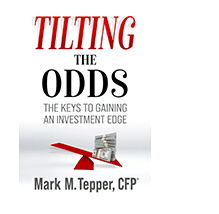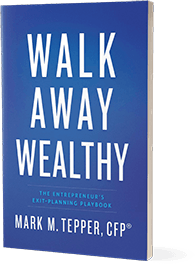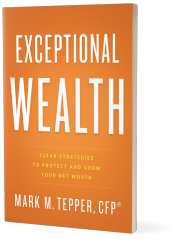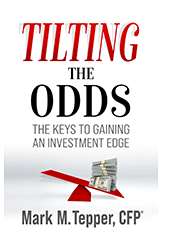What’s a greater risk to the market? Is it the new Omicron variant or the Federal Reserve? When buying into the S&P 500, where exactly is your money going? Since last month, the S&P 500 had a maximum drawdown of roughly 4.1 percent –– there was panic but then it recently recovered. But while the S&P 500 was down 4 percent –– the overall market was down even more. This makes us think that the S&P 500 may not be the best index anymore to forecast how the overall market is performing. Is it time for a new index?
In Episode #105 of “The Capitalist Investor,” Derek “Diamond Hands D” Gabrielsen and Luke “Cool Hand Luke” Lloyd reflect on the market’s history, debate overvalued stocks, stroll through the evolution of indices just to answer all your questions and more.
Outline of this Episode
- [6:30] The economy’s immunity to Omicron
- [10:55] The Fed as a risk
- [14:00] S&P’s issue with reliability
- [20:45] History of the Indices
Omicron vs the Federal Reserve –– The Fed is worse for the market
Data is showing that the new Omicron variant is very mild –– Covid-19 and its variants are turning out to be just like the flu virus –– which is just what we wanted anyways. This virus is not turning out to be as bad as we thought it was; with vaccinations, people are becoming more immune to it. So that just leaves the Federal Reserve –– are we immune to that?
We’re currently living in a high inflation environment, the highest in over 30 years. Previously, the Fed announced it will start to taper and increase interest rates, but when? The market is not going to like the Fed’s response to inflation but we want it –– short-term pain for long-term gain is better than the opposite.
Thankfully the Fed is starting to get there and hop on the initiative of tapering bonds and raising interest rates –– but they need to combat this inflation crisis sooner rather than later.
The S&P 500 isn’t a good indication for the overall market anymore
Amazon, Apple, Facebook (now known as Meta), Google, Microsoft, Tesla, Netflix –– there’s no denying that these stocks are the biggest stocks in the market right now. They make up over 30 percent of the S&P 500; is the S&P 500 even a reliable index though? You may not have realized it, but when you buy into the S&P 500, nearly 30 percent of your money is simply going into those big-named stocks.
Over the past couple of weeks, the S&P 500 was down 4 percent, meanwhile the broader market and those big-named stocks were down even more. The market is just not as reliable as it used to be –– the S&P 500 isn’t a great judge of performance anymore.
When the market is down, everyone is buying Apple or Amazon stocks as a safe haven when anything goes wrong; but where is the value? At some point, these big-named stocks and companies are just going to become more overvalued without any cash flow and payoff.
So much has changed in the last few years –– just like how the 60/40 portfolio is going out of style, so is investing in major big-corp stocks. It may be time to find discounted stocks more attractive and rotate a bit of the bigger names out.
40 years without a new index –– it may be time for a new one
We looked at the history –– and now it’s your turn. Someday, there will be a new index; the S&P 500 is just too unreliable lately.
In 1896, Charles Dow created the Dow Jones –– the first ever index to work as an agent for the broader U.S. economy and measure its health.
Then in 1957, the S&P 500 was created in order to trace the value of the 500 largest corporations listed on the New York Stock Exchange. It may have worked for a long time but it’s weighing can not keep up with today’s market divergence.
Then, in 1971 the NASDAQ was created as the world became more computerized, as a site where investors could trade essentially on a computer on a more up to speed, noticeable system.
It’s been over 40 years since the last, functional stock index has been created. It’s time to reimagine a new one –– one that is weighted differently and more balanced to show the performance of the broad market.
Connect with Derek Gabrielsen
- Twitter: @DerekGabrielsen
- Follow Derek on LinkedIn
- Send Derek a message here
- Check out Derek’s YouTube channel!
Connect With Mark Tepper
- Twitter: @MarkTepperSWP
- Follow Mark on LinkedIn
- Send Mark a message here
- The SWP Connect YouTube Channel
Send your questions and comments to us at info@SWPConnect.com
Subscribe to The Capitalist Investor
 Enter your information below, and we will email you our new eBook, Tilting the Odds
Enter your information below, and we will email you our new eBook, Tilting the Odds




